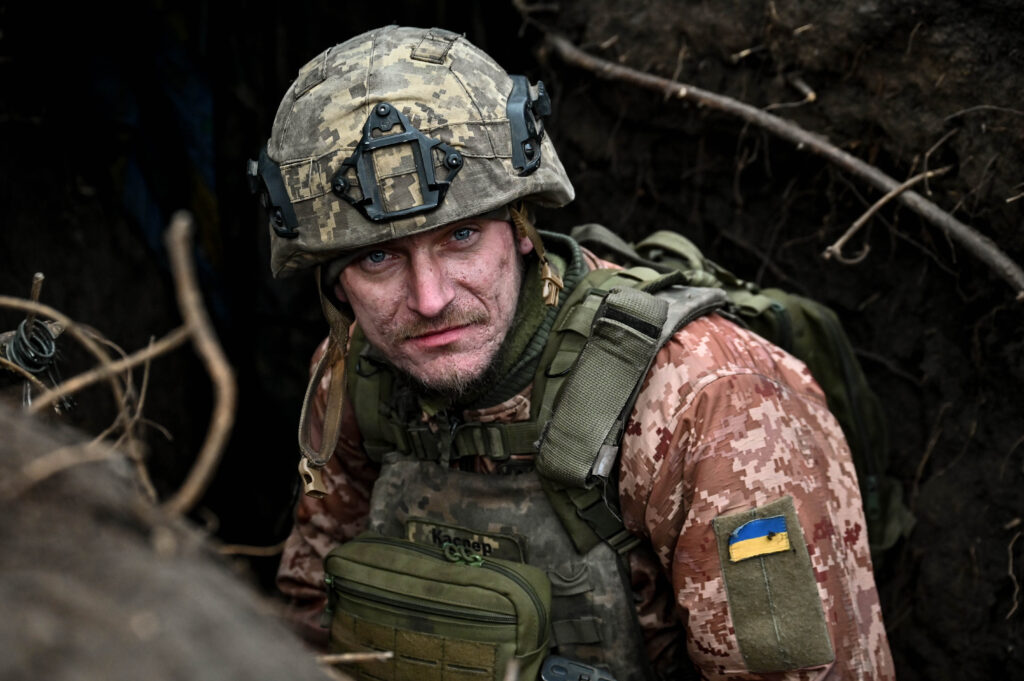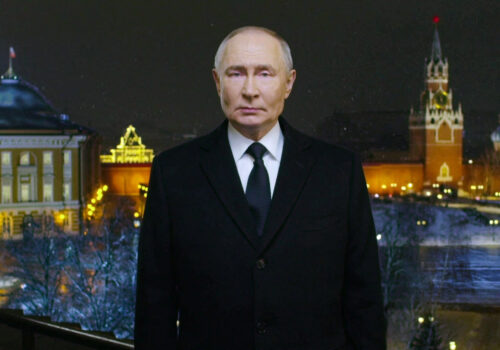Ever since Donald Trump’s November 2024 election victory, speculation has been mounting over a potential peace deal to end the Russian invasion of Ukraine. With Russian forces currently enjoying the battlefield initiative and amid doubts over continued US support for Kyiv, many observers believe Ukraine may have little choice but to accept highly unfavorable peace terms dictated by the Kremlin. Russia’s conditions would likely include the loss of territory along with wholesale disarmament and the imposition of permanent neutral status.
The implications of such a shameful peace for Ukrainian statehood would be catastrophic. Nor would the damage be contained within Ukraine’s violated borders. On the contrary, the consequences of abandoning Ukraine would reverberate around the world for many years to come, undermining the foundations of international security.
If it happens, the fall of Ukraine may not be immediately apparent. Indeed, it could even be temporarily disguised by face-saving talk of pragmatism and compromise. However, a demilitarized, partitioned, and internationally isolated postwar Ukraine without credible security guarantees would have little chance of surviving for long. Behind the diplomatic platitudes, it would be painfully obvious that Ukraine was now completely at Putin’s mercy. In such circumstances, a new Russian invasion would be merely a matter of time.
Stay updated
As the world watches the Russian invasion of Ukraine unfold, UkraineAlert delivers the best Atlantic Council expert insight and analysis on Ukraine twice a week directly to your inbox.
The spirit of the 1938 Munich Agreement looms large over prospective US-brokered peace talks between Russia and Ukraine. With pressure mounting on Ukraine to make concessions to the aggressor, it is hardly surprising that many are comparing the current situation to the ugly deal between Western leaders and Nazi Germany that sealed the fate of Czechoslovakia and paved the war for World War II. Just as British Prime Minister Neville Chamberlain returned from Munich brandishing Hitler’s worthless signature and declaring “peace for our time,” critics now fear that similar efforts to appease Putin will set the stage for further Russian aggression.
Ukraine’s demise as an independent state would confirm the failure of the existing international security architecture. In its place, we would enter a new era of international affairs dominated by a handful of Great Powers seeking to establish their own spheres of influence, with smaller countries reduced to the role of buffer states. A climate of insecurity would initially take root from the Baltic to the Balkans, and would soon spread to the wider world.
The collapse of the rules-based international order would inevitably undermine the credibility of the West. Meanwhile, authoritarian regimes such as Russia, China, Iran, and North Korea would be significantly strengthened. Moscow would almost certainly escalate its ongoing hybrid war against the democratic world, and may seek further territorial gains in Central Asia, the Caucasus, or Eastern Europe. Autocrats in Beijing, Tehran, and beyond would draw the logical conclusions from Putin’s victory in Ukraine and embrace expansionist foreign policies of their own.
With the sanctity of international borders no longer assured, countries around the world would scramble to rearm. Crucially, Russia’s successful use of nuclear blackmail against Ukraine would convince many nations to acquire nuclear weapons of their own. This would lead to a nuclear arms race that would rapidly escalate, undoing decades of non-proliferation efforts. With dozens of countries aspiring to nuclear status, the chances of a nuclear war would rise dramatically, as would the potential for nukes to fall into the hands of rogue actors.
Eurasia Center events

Today’s international security crisis did not arise overnight. The security climate has been steadily deteriorating since 2014, when Russia first seized the Crimean peninsula and invaded eastern Ukraine’s Donbas region. The inadequate international response to these watershed acts of Russian aggression was interpreted in Moscow as a green light to go further, creating the conditions for the full-scale invasion of 2022 and setting the stage for what has become the largest European war since World War II.
If Western leaders now choose to sacrifice Ukraine in a misguided bid to placate Putin, the shift from a rules-based international order to the law of the geopolitical jungle will be complete. This transition will be extremely expensive, with countries around the world forced to dramatically increase defense budgets to levels that dwarf the current cost of military support for Ukraine.
None of this is inevitable, of course. It is still entirely possible to secure a just peace for Ukraine that would deter the Russia-led axis of autocrats and revive faith in a rules-based system of international relations. However, this would require a degree of resolve and political will that few Western leaders have been prepared to demonstrate since the onset of Russia’s full-scale invasion in 2022. For almost three years, the Western response has been marked by excessive caution and a crippling fear of escalation that have only served to embolden the Kremlin.
Putin is clearly counting on continued Western weakness as he looks to break Ukrainian resistance in a grinding war of attrition. He is now more confident than ever of victory and has little interest in negotiating anything other than the terms of Ukraine’s surrender. This is the unfavorable reality that will confront Donald Trump when he returns to the White House later this month. Unless he and other Western leaders insist on pursuing peace through strength, Ukraine will have little chance of survival and the wider world will face a Hobbesian future of instability and aggression.
Victor Liakh is the CEO of the East Europe Foundation.
Further reading
The views expressed in UkraineAlert are solely those of the authors and do not necessarily reflect the views of the Atlantic Council, its staff, or its supporters.

The Eurasia Center’s mission is to enhance transatlantic cooperation in promoting stability, democratic values and prosperity in Eurasia, from Eastern Europe and Turkey in the West to the Caucasus, Russia and Central Asia in the East.
Follow us on social media
and support our work
Image: A serviceman of the 65th Separate Mechanized Brigade of the Land Forces of the Armed Forces of Ukraine is vaping in the trenches near Robotyne, Zaporizhzhia region, south-eastern Ukraine. (Photo by Dmytro Smolienko/Ukrinform/Sipa USA)




